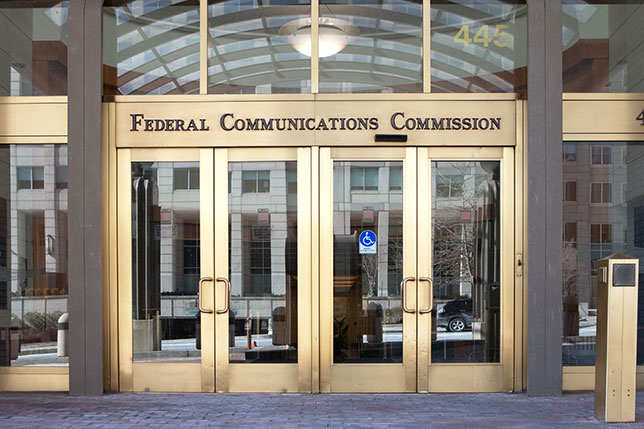Administration of $4 Billion School Funding Program May Be 'Out for Contract' Following USAC CEO Resignation
- By Dian Schaffhauser
- 05/08/17

With the announcement that USAC CEO Chris Henderson has left the building, education observers are wondering what the change in leadership will bring to the organization that runs the E-rate program.
The Universal Service Administrative Company (USAC) is an independent, not-for-profit corporation that was created in 1997 to run universal service programs and the universal service fund. USAC collects Federal Communications Commission-mandated contributions from telecommunications carriers and distributes those funds across the four programs — Schools and Libraries (E-rate), High Cost, Lifeline and Rural Health Care — according to the rules set by the FCC. USAC administers almost $10 billion in funding, about $4 billion of which is targeted for schools and libraries through E-rate.
Henderson ran USAC beginning in September 2014. During that time, he led the organization through a period of modernization that encompassed a major rise in the amount of E-rate funding available, changes in application processes, updates in the stakeholder experience and an emphasis on program integrity.
Henderson's resignation May 3 came just a couple of weeks after newly appointed FCC Chairman Ajit Pai sent him a letter criticizing the development and roll-out of the online E-rate Productivity Center, which has experienced numerous problems since its launch for the 2016 funding year. In the letter, which has gone public, Pai complained about system failures, a "lack of full transparency with the Commission" and dramatic budget overruns.
At least one member of the FCC commission is delighted by Henderson's departure. Without naming Henderson, Commission Michael O'Rielly released a statement suggesting that USAC's functions could now be put "out for contract."
"The departure of its CEO presents an opportunity for [USAC] to clean up its act," said O'Rielly. "USAC as it has been managed is not sufficiently accountable to the Commission, and is not meeting the needs of universal service stakeholders or the public, who pay fees to support USAC's operations. Absent significant and timely improvements, I believe that all options should be on the table, including putting USAC's functions out for contract, as the Commission has done in other circumstances."
O'Rielly was named chairman of the Federal-State Joint Board on Universal Service by Pai. In February he hit up Henderson to help in stopping what he viewed as E-rate "waste" in the form of overbuilding of broadband services. Specifically, he had read an article about a county school system in Virginia using a county-provided network to deliver broadband to some schools and Comcast services to deliver it to other schools, but wanted to use E-rate funding to build a backup fiber network.
"In those instances, ratepayer dollars are being used to support artificial competition potentially jeopardizing service to the broader community," O'Rielly wrote Henderson in a letter. The same letter, dated Feb. 9, 2017, included 10 questions that he wanted answers to by Feb. 17, including how many applicants had sought E-rate funding for "self-construction" and how many of those requests "would result in overbuilding a separate provider's network."
Response from the E-rate community has been mixed. John Harrington, CEO of E-rate consultancy Funds For Learning, acknowledged that while the "fundamental elements of the E-rate program — discounts, local decision-making and strong competition — are working well," the online system "has caused unnecessary delays." He noted that he'd like to see the changeover in leadership be the spark needed for the FCC and USAC to begin working together "to create positive change in the administration of the E-rate program."
Dan Riordan, president of another E-rate consulting firm, On-Tech, said that replacing USAC for running E-rate might be a good idea — in the long term. What's important now, he wrote in a blog article examining Henderson's exit, is to maintain stability. "In a time of turmoil for the program, we don't need a whole new organization running things. There has been a lot of turnover at the top, but there is still a lot of institutional knowledge in the trenches," he stated.
What troubles Riordan is that while USAC is a non-profit, it still maintains deep industry ties. First, it's a wholly owned, not-for-profit subsidiary of the National Exchange Carrier Association (NECA), which is a lobbying firm for the telephone companies; and second, about a quarter of its operating expenses, he insisted, "are paid to Solix, a for-profit subsidiary of NECA."
While it would "be hard to find an organization that was both competent to run the program and free of any industry ties," Riordan added, "still, it would look nice if the FCC at least looked at other options." If the FCC does decide to replace USAC, he added, "I hope they'll make a careful search and have a nice, long period of transition."
Until the USAC board appoints a replacement, Vickie Robinson, the organization's vice president and general counsel, will serve as Acting CEO. She previously came from the FCC, where she focused on university service policy and enforcement matters.